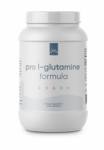Your Immune System: It All Starts in Your Gut
- When Bad Bacteria Take Over
- Bad Gut Bacteria, Inflammation, and Your Immune System
- The Gut-Immune Connection Began At Birth
- Gut-Immune Health: Start with Your Diet
- The Nutrients to Support Your Immune System and Your Gut
- Lifestyle Factors to Support Your Gut and Immune System
You have about 300 to 500 different species of tiny organisms called bacteria in your digestive tract. Altogether, that’s tens of trillions of microorganisms. Along with other tiny organisms like viruses and fungi, these gut bugs are called your microbiota.
The right gut bacteria play a role in numerous aspects of health, including the immune system. After all, most of your immune system is in your gut. If you get frequent colds and other illnesses, the problem might be in your gut.
The bacteria in your gut and your immune system are intricately connected. In fact, these gut bacteria teach your immune system how to behave.
Many of these bacteria keep you healthy. They help support brain health, help you maintain a healthy weight, and more. The right gut bacteria also promote healthy metabolism, protect against infections, and create nutrients like short-chain fatty acids, enzymes, and vitamins.
But when things go wrong with your gut, your immune system can take the hit.
When Bad Bacteria Take Over
 Your immune system and gut work together to protect against the spread of bad bacteria and keep the right amount of good gut bacteria. Your gut, in turn, monitors how your immune system reacts.
Your immune system and gut work together to protect against the spread of bad bacteria and keep the right amount of good gut bacteria. Your gut, in turn, monitors how your immune system reacts.
A healthy immune system protects against pathogens. But these pathogens — the bad gut bacteria — have also evolved and replicated, disrupting that gut imbalance.
Overseeing this process is the vagus nerve, your body’s longest cranial nerve that monitors gut health. This nerve communicates with your immune system to create balance. The vagus nerve also helps regulate appetite, mood, gut inflammation, and more.
When the vagus nerve detects inflammation, it generates an immune response. That keeps inflammation fired up and your immune system in overdrive, taking its toll on your gut and immune system.
Certain things can disrupt those good bacteria and create bacterial overgrowth. They include:
- High stress
- Too little sleep
- Processed, sugary diets
- Antibiotics
Your immune system takes a hit, but so do your brain, heart, and skin. Bad bacteria can impact your weight, hormone levels, ability to absorb nutrients, and even risk of certain diseases like cancer.
Bad Gut Bacteria, Inflammation, and Your Immune System
Along with a compromised immune system, inflammation can lead to autoimmune diseases. Researchers found that one specific bacterium — one of the unhealthy gut bacteria — creates infection. Your gut becomes impacted, but so do other organs like your liver, spleen, and lymph nodes.
In some rodent and human studies, this bacterium created inflammation and an immune response. Researchers used a vaccine to suppress this bacterium’s growth and reduce its impact on the immune system. These studies reveal how the overgrowth of just one bad bacteria can create gut imbalances.
Inflammation isn’t always bad. This is your body’s immune system’s response to a splinter in your finger or any kind of irritant. Pathogens or germs like bacteria, viruses, or fungi can all activate your immune system and create inflammation.
Sometimes that inflammation can get out of hand. When your immune system mistakenly fights your body’s own cells, autoimmune diseases like rheumatoid arthritis and inflammatory bowel diseases can result.
The Gut-Immune Connection Began At Birth
 When you were born, antibiotics from your mother provided immunity. Eventually, that bacteria “educated” your immune system how to protect you from infections.
When you were born, antibiotics from your mother provided immunity. Eventually, that bacteria “educated” your immune system how to protect you from infections.
Germ-free lab mice born without gut bacteria have an immature immune system. They lack the protection immunity provides against infections. But when researchers introduce healthy bacteria into their guts, those mice develop a strong, diverse immune system.
Likewise, children born from cesarean section — which delays development of gut bacteria and therefore a strong immune system — have a higher risk of developing diseases like type 1 diabetes and asthma. They also have an increased risk of obesity compared to vaginally born children.
Anything that knocks that good gut flora out of balance can have widespread repercussions. Children treated with certain antibiotics, for instance, have a higher risk for diseases like allergy and asthma because of gut imbalances.
Those problems carry into adulthood. Over-using antibiotics and a poor diet — problems in Western countries — have made your gut flora less diverse and resilient to potential problems. As a result, autoimmune and inflammatory diseases have increased over the past few decades.
Gut-Immune Health: Start with Your Diet
You want the right kinds of bacteria, but you also want a variety of these microorganisms. This variety helps your immune system understand that not everything you’re exposed to requires a response.
The right quality and quantity of these good gut bugs can help you bounce back from, say, eating something that doesn’t settle well or visiting a foreign country. Those good gut bugs create a more tolerant, well-regulated immune system.
To do that, start with food. How you eat can have a significant impact on gut and immune health.
A healthy gut also means you break down food well, absorbing immune-supporting nutrients. Bile, a fluid that your liver makes and releases, helps break down dietary fat into fatty acids. Researchers link low bile acid levels in your gut with bacterial overgrowth and inflammation.
 To remedy that, you want the right nutrient-rich foods that support gut and immune health. Vitamin A, for instance, can “keep the peace” between your gut and immune system. Moderate levels of this fat-soluble vitamin in your gut can prevent the immune system from becoming overactive and reduce your risk of autoimmune disease.
To remedy that, you want the right nutrient-rich foods that support gut and immune health. Vitamin A, for instance, can “keep the peace” between your gut and immune system. Moderate levels of this fat-soluble vitamin in your gut can prevent the immune system from becoming overactive and reduce your risk of autoimmune disease.
Healthy fats can also support your gut and immune system. Extra-virgin coconut oil provides a fatty acid called lauric acid that can kill bacteria, viruses, fungi, and other harmful pathogens in your gut. Oleic acid, a fatty acid in foods like extra-virgin olive oil, can lower inflammation and support a strong immune system.
Eating lots of colorful plant foods like fruits and vegetables also provides numerous immune-supporting nutrients like vitamin C as well as dietary fiber. Your colon creates short-chain fatty acids (SCFAs) from fiber.
These SCFAs provide energy, in fact, for colon cells. But they also play roles for your immune and gut health:
- Helping maintain your gut wall
- Balancing blood sugar levels
- Supporting heart health
- Immune support
- Regulating appetite
- Protecting against obesity
Animal studies even show that increasing SCFAs from dietary fiber can significantly reduce anxiety and stress.
Equally important is what to keep out of your diet. Gut imbalances can create food intolerances that can lead to bloating, gas, diarrhea, abdominal pain, and nausea. A vicious cycle results as sugar, gluten, and other problem foods mess with your gut.
Our Advanced Plan eliminates gluten and other problematic foods to help lower inflammation, support gut health, and keep your immune system strong.
The Nutrients to Support Your Immune System and Your Gut
Along with a healthy diet, several supplements can keep your gut healthy and immune system strong. Talk with your healthcare practitioner about these and other nutrients for your condition.
 Probiotics. Using probiotic supplements can improve gut and upper respiratory symptoms. They can also support your immune system.
Probiotics. Using probiotic supplements can improve gut and upper respiratory symptoms. They can also support your immune system.
 Vitamin C. This vitamin supports white blood cells to protect against infections. As a powerful antioxidant, vitamin C can also support gut health.
Vitamin C. This vitamin supports white blood cells to protect against infections. As a powerful antioxidant, vitamin C can also support gut health. L-glutamine. This amino acid provides fuel for your immune system to work well. L-glutamine also plays a role in gut health, helping cells grow and develop while keeping your gut wall strong.
L-glutamine. This amino acid provides fuel for your immune system to work well. L-glutamine also plays a role in gut health, helping cells grow and develop while keeping your gut wall strong.
Lifestyle Factors to Support Your Gut and Immune System
How you eat and the nutrients you take can keep sickness at bay and the maintain the right balance of gut bacteria. Beyond that, a few important lifestyle choices can provide the added support for your immune system and your gut.
Not getting a good night’s sleep in the right amounts makes you more likely to get sick but also recover more slowly from illness. Poor-quality sleep can also disrupt your gut balance. That can lead to blood sugar imbalances and other problems.
Chronic stress can lead to problems like leaky gut, where things that shouldn’t get through your gut wall do. That leads to an immune system and inflammation in overdrive.
Your gut health and immune function work together to help you better adapt to exercise. When both systems work well, you get sick less often and better utilize nutrients that can help you perform better.
But it works both ways: Getting consistent exercise can support gut and immune health. Even 30 minutes of brisk walking can create a powerful impact on both systems.
Supporting the right gut balance can create a healthy immune system, and vice versa. Researchers are exploring how gut changes contribute to different diseases.
As we learn more about how the gut and immune system work together, scientists will better understand diseases like Alzheimer’s disease, rheumatoid arthritis, inflammatory bowel disease (IBD), and asthma.


